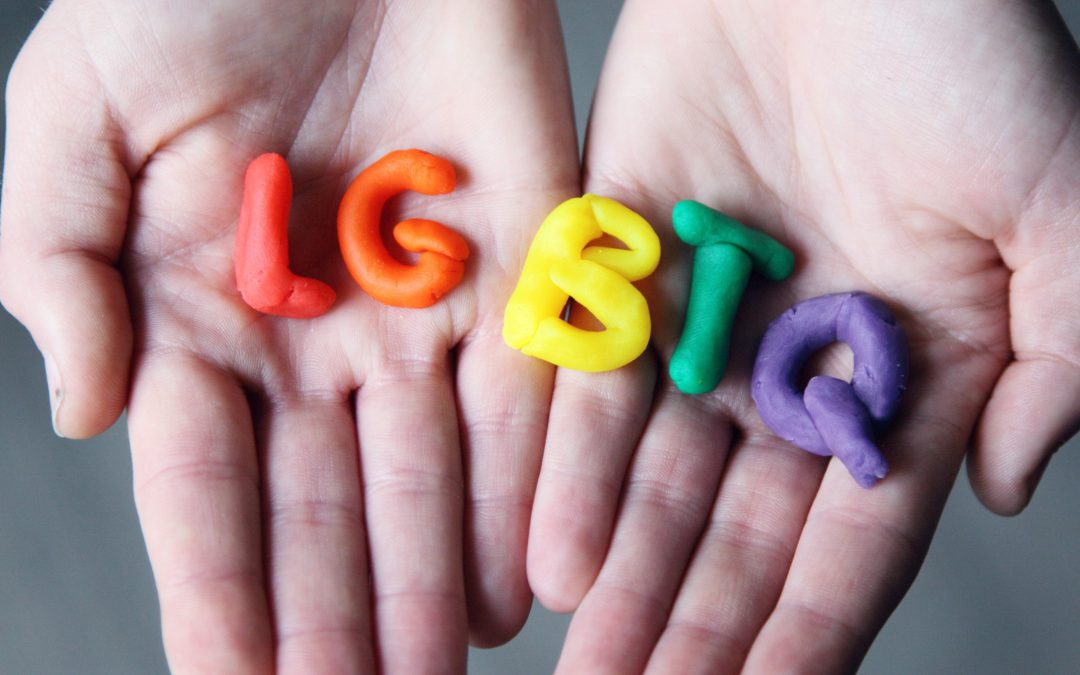Due to a number of external pressures, including social stigma and discrimination, members of the LGBTQ community are at higher risk for substance use disorders (SUDs) and addiction. “LGBTQ” stands for lesbian, gay, bisexual, transgender, and queer.
This acronym has recently been expanded to LGBTQIA+ to better represent the diversity within the queer community, but the research used for this article focuses primarily on lesbian, gay, and bisexual members. To reflect this research, LGBTQ will be used. This article will look at some of the stressors that contribute to addictive behaviors among LGBTQ individuals and how these community members can be supported.
Identifying as LGBTQ means identifying outside the sexual majority. Studies show that individuals who do not identify as heterosexual are at greater risk for substance use and behavioral health conditions. This could be for a variety of reasons. First, let’s look at a few factors that increase the risk of addiction in any community with a focus on the LGBTQ population.
Resources Needed for Addiction Recovery
Limited resources for those in the LGBTQ community struggling with addiction include:
#1 Access to Social Support
In the LGBTQ community, it is not uncommon to meet individuals who are experiencing isolation because they lost their family after coming out as lesbian, gay, bisexual, transgender, or otherwise queer. Untethered from the implicit social supports of a family structure, these individuals do not have someone to turn to when they feel they need help. Often, heterosexual friends turn away as well when queer individuals come out. This results in further isolation and limits access to emotional support. Unfortunately, it’s not even uncommon to learn that individuals lose their job after being exposed at work.
#2 Access to Physical Resources
Food, clothing, and the ability to travel are also heavily limited in the face of discrimination and abrogated communities. This means LGBTQ individuals who would otherwise seek help have little ability to do so because they are lacking in the necessary material resources. Without proper attire, one can’t find a job. Without a job, one can’t afford proper attire. It becomes a self-perpetuating cycle from which individuals wish to escape but have little hope of doing so, contributing to poor mental health.
#3 Access to Medical Care
The same is true for access to healthcare and medical professionals. Further, until very recently (2015), medical health professionals took conclusions from research that targeted only the heterosexual population and applied it to those who did not fit that grouping. This resulted in outreach that did not take cultural differences of the LGBTQ community into account, meaning that the supports offered were not reflective of the supports needed. It was only in the last few years that this community has been realized in the medical literature.
Marginalization and Addiction
This paints a dark picture, but this type of marginalization is not new. In addition, it contributes to levels of depression which pays forward to drug and alcohol use. The United States has a long history of marginalizing groups deemed other, beginning with Indigenous peoples and including Africans originally brought over during the slave trade. Black Americans still face consistent micro and macro aggressions on a daily basis from individuals who see themselves as enlightened and beyond racism. Additionally, marginalized groups had and continue to have higher mortality rates, including death by suicide.
All of this, again, contributes to stress levels and poor mental health, which are factors contributing to substance abuse and addiction. This means that members of the LGBTQ community need outreach that prioritizes their cultural values.
Addiction Help for the LGBTQ Population
West Coast Recovery Centers provides medical and mental health intervention for SUDs and addiction recovery that addresses the whole person. This means supporting the creation of a community for marginalized clients through group therapy. Since our program is holistic, it takes marginalizations into account and addresses them through various avenues, including gender-responsive programming.
While many LGBTQ individuals will not resonate with the binary nature of gender-responsive programming, it remains a useful tool for understanding traumas and aggressions experienced because of assumed gender. This allows for deeper conversations into marginalization with a therapist to address individual root causes of SUD or addiction and can have a lasting impact on addiction recovery.
Finally, WCRC offers group therapy settings. This gives LGBTQ clients the opportunity to establish a peer community of like-minded individuals. This can aid in offsetting the lack of support often faced by the queer population in daily life by offering a shared point of experience: addiction recovery. Engaging in discussion or art therapy in a safe setting with a professional facilitator allows for greater confidence in the recovery process. In turn, this supports the individual by reducing the likelihood of relapse.
Since members of the LGBTQ community are marginalized, they face higher instances of stigma and discrimination. They also have less access to community resources. This results in higher stress levels and increased rates of mental health disorders, which both contribute to drug and alcohol use, addiction, and higher suicide rates. However, in the last few years, more resources for LGBTQ community members have become available. Additionally, professional medical settings are more equipped to treat this community. If you or someone you know identifies as LGBTQ and is ready to take the next steps in drug or alcohol addiction recovery, West Coast Recovery Centers invites you to reach out today. Call for more information and treatment options at (760) 492-6509.




